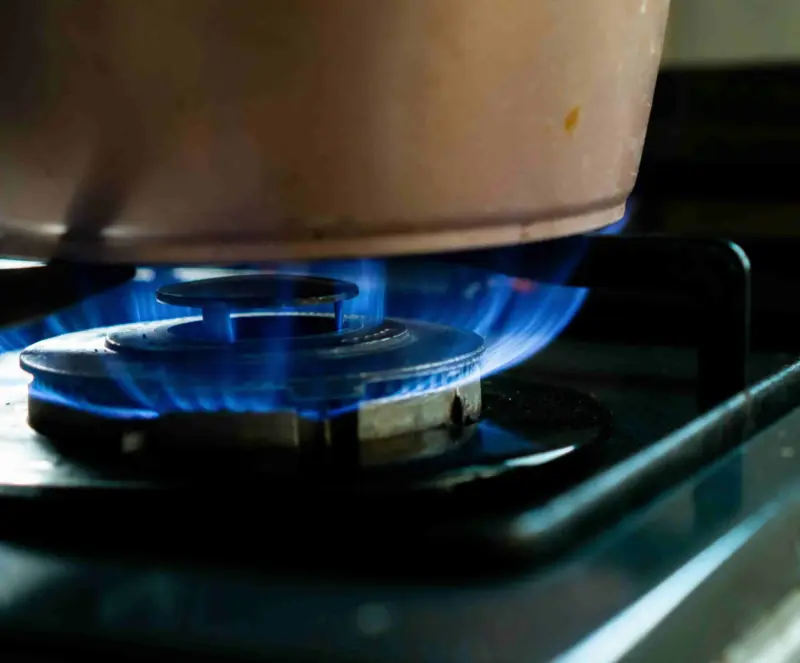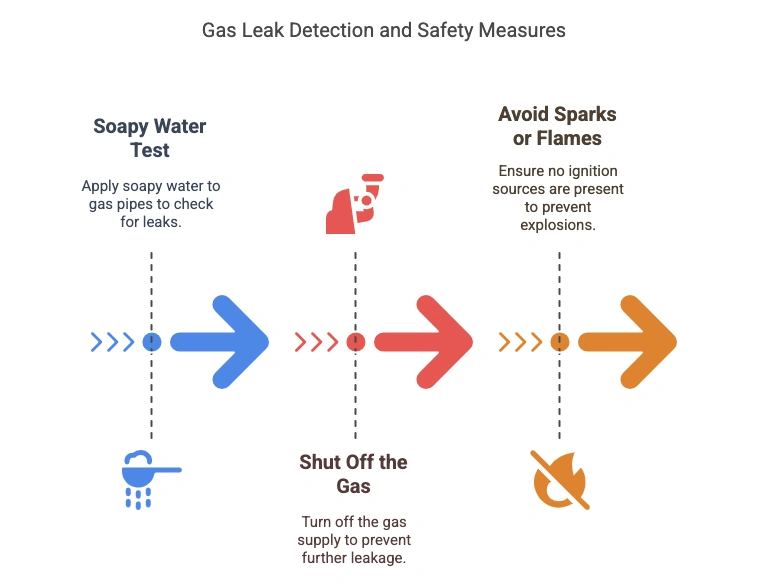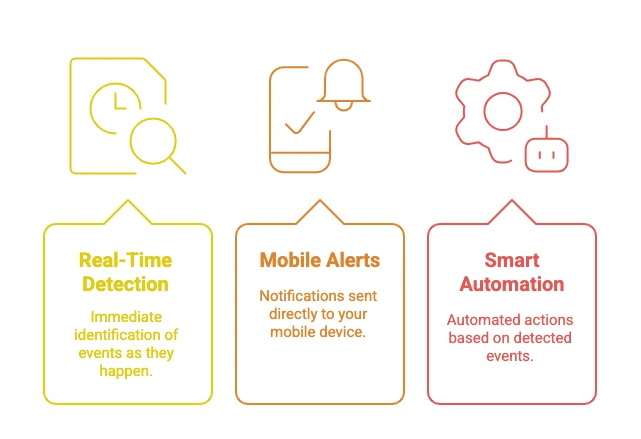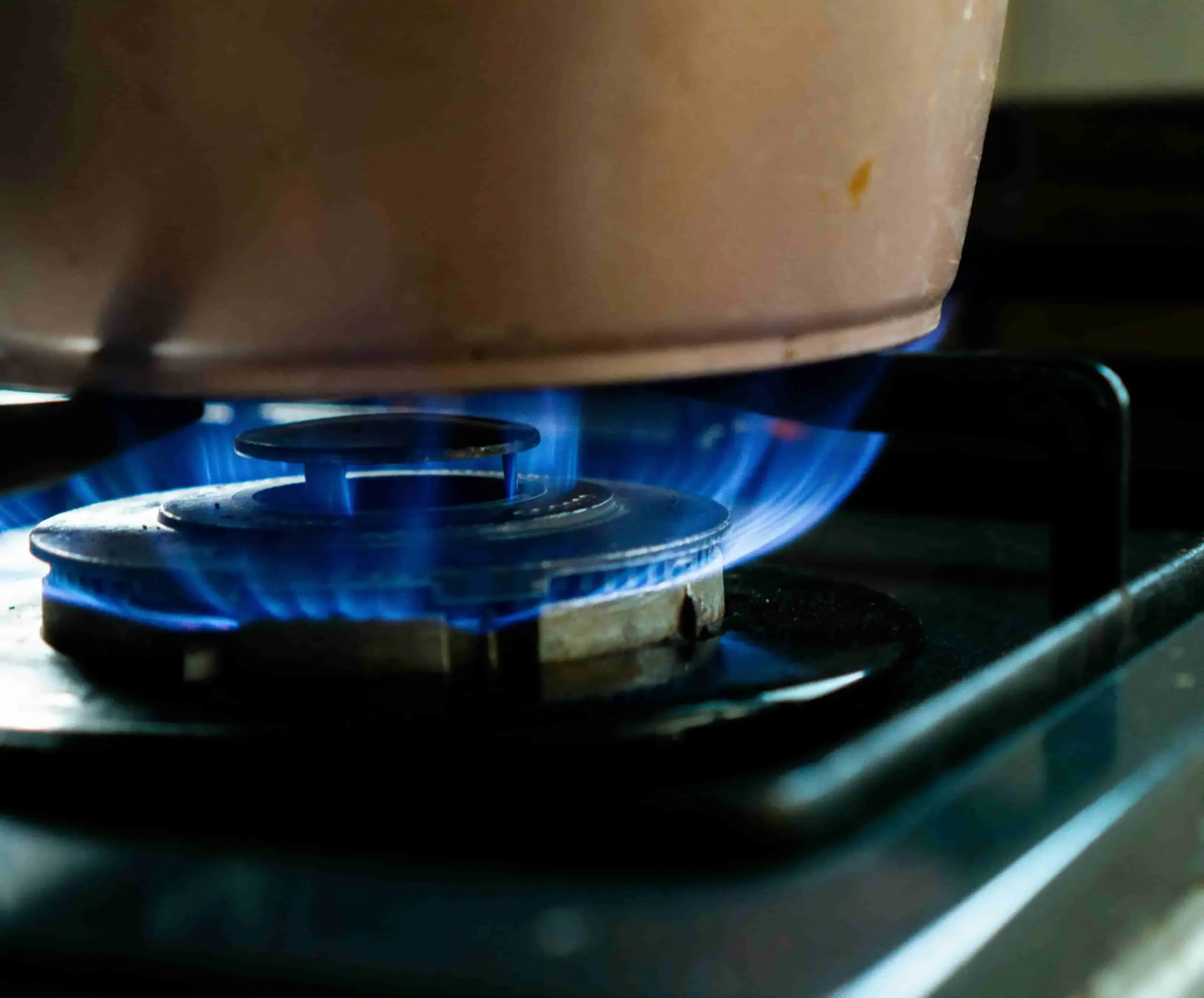Signs to Watch For and Why a WiFi Natural Gas Detector Can Be a Lifesaver
Home Natural Gas Detector: A Hidden Danger in the Kitchen
Have you installed a home natural gas detector yet?
If not, ask yourself this: Have you ever walked into your kitchen and suddenly caught a whiff of something that smelled like rotten eggs?
That smell might be more than unpleasant—it could be a dangerous gas leak. Every year, National Fire Protection Association (NFPA), U.S. fire departments respond to over 125,000 incidents involving natural gas. Most occur in residential homes, often around stoves, furnaces, or pipelines. Many homeowners first search this after noticing a gasoline odor indoors. Learn more in Gasoline Smell in House Dangerous.
The solution? Prevention—and it starts with installing a WiFi-enabled home natural gas detector. In this article, we’ll show you how to detect a gas leak, what symptoms to look out for, and why a home natural gas detector is the simplest way to protect your loved ones.

Common Signs of a Gas Leak in Kitchen
Natural gas is invisible—but your home might be giving you warnings. Here are signs you may have a gas leak in kitchen or near the stove:
- 🔺 Strong rotten egg smell (added odorant called mercaptan)
- 🪴 Houseplants dying without reason
- 🔥 Stove burner flame turns yellow or orange instead of blue
- 🤕 Physical symptoms like headaches, dizziness, or nausea
💡 Pro Tip: Don’t Ignore the Smell
If you smell gas, turn off your stove, open the windows, and avoid using electronics. Even a spark can be dangerous.

How to Detect a Gas Leak from Your Stove (Safely)
Wondering how to detect gas leak from stove without professional help?
Here are two simple methods:
1. Soapy Water Test
Mix dish soap and water. Apply to suspected gas pipe connections. If bubbles form, you’ve likely found a leak.
2. Listen and Smell
A faint hissing sound or the classic rotten egg odor can indicate trouble.
However, these methods are manual, inconsistent, and risky. The safest option is to install a home natural gas detector with WiFi for constant monitoring and instant alerts.

Why a WiFi Home Natural Gas Detector Is a Must-Have
Here’s why thousands of homeowners are now installing a WiFi home natural gas detector:
- Real-time detection of gas leaks
Instantly detects leaks near stoves, heaters, or gas lines. - Smartphone alerts when you're not home
Whether you're at work or on vacation, your phone gets notified. - Peace of mind for your family
You can sleep soundly knowing gas levels are constantly monitored. - Optional smart home integration
Some models can auto shut off valves or alert neighbors via connected systems.
🛡️ Want full protection? Try this WiFi home natural gas detector that alerts you instantly on your phone and keeps your kitchen safe—whether you're home or away.

What If You're on Vacation and a Gas Leak Starts?
Let’s imagine:
You’re on a family vacation in Florida. The sun is shining, your kids are playing in the sand—and back home, a gas leak starts in kitchen.
You don’t smell it. Nobody’s home. It continues for hours or even days…
But then, your WiFi home natural gas detector detects abnormal gas levels and immediately sends a mobile alert to your phone.
You act quickly—call your neighbor to check, or even shut off the gas valve remotely (if connected).
Crisis averted. Home saved.
Final Thoughts: Your Safety Starts with a Home Natural Gas Detector
Can a stove gas leak kill you?
Unfortunately, yes—if it’s undetected. But it doesn’t have to end that way.
Installing a home natural gas detector is one of the simplest, most affordable ways to prevent a catastrophe.
⚠️ Don’t wait for a close call.
👉 Protect your home with a WiFi natural gas detector today
Because safety should never be optional.
Protect your home from both gas and carbon monoxide leaks with our dual smart detector set. Enjoy up to 10% off for a limited time — peace of mind has never been this affordable.
Shop the Black Friday Bundle →

